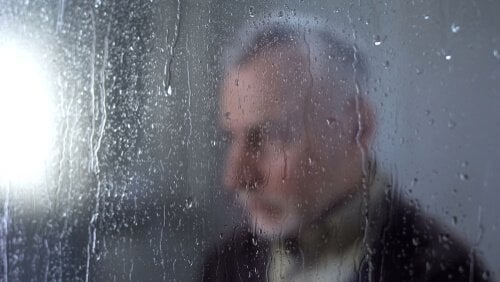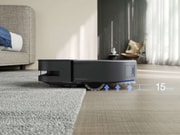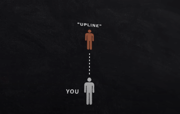Ask Joy: ‘It’s the Weather’ – Winter Blues?
- Replies 2
Note from the Editor:
This article was kindly written for the SDC by retired psychologist/ member @Joy Straw.
Feeling a bit ‘down’ or lacking energy? Some people love winter, and some people hate winter. Similarly, some people love summer; some people hate summer. If you are one of those people who actually gets down and sad when the season changes, you may have something that’s called seasonal affective disorder., or S.A.D. Or you may just be having the ‘blues’ or anxiety related to stress and the weather.
Depression-related changes due to the seasons are called Seasonal Affective Disorder (SAD) and are most often related to winter. We often talk about having winter blues where just getting up in the morning is difficult. This can be related to a drop in our serotonin due to less sunlight at certain times of the year. It also can be related to the fact that winter is sometimes difficult if you have arthritis, or other physical problems and it’s certainly difficult to get out of bed on a cold morning.
Whether it is SAD or simply the blues, there are things we can do to improve our depression and not let it become an embedded condition.
Assessment
It’s important to get a physical examination, lab tests and a psych evaluation. These will determine whether you have a physical condition, mental condition or simply a chemical imbalance. It is also possible to have a deficiency in vitamin D, vitamin B, or both. This will determine if the physical aches and pains you are experiencing are from a deficiency, the lack of sunlight, or depression.
Treatment
Light therapy or phototherapy uses a lightbox to stimulate the brain to produce chemicals to change the brain's chemistry. Do not purchase the lightbox before checking with your GP. It is much easier to have a vitamin B or D injection than spending money and sitting with light on.
In light therapy or phototherapy, you sit a few feet from a special lightbox so you are exposed to bright light upon regularly waking each day. Light therapy mimics natural outdoor light and appears to cause a change in brain chemicals linked to mood. Research and therapy are limited but appear effective for most people to relieve symptoms.
Psychotherapy
‘Talking therapy’ and Cognitive Behavioural Therapy (CBT) are other options used in helping to teach us to cope with negative emotions at these times of the year. These emotions may be buried amongst some negative thoughts, and therapy will help sort these out. Talking with a therapist can also help reduce our stress and anxiety.
Medications
If required, your GP or therapist may recommend a short course to help balance your brain's chemical production.
What can you do to help yourself in less intrusive ways?
Some of the simple things work wonders:
If you’re feeling overly tired, have aches and pains in joints and/or can’t sleep/sleep too much, see your GP about having a blood test. After COVID and having stayed inside quite a lot, I was amazed to find I had a major vitamin D and B deficiency, so easy to rectify with an injection. Vitamin B deficiencies are quite common in the over 65 years old group. It’s important to our physical health and mental health to rule out physical conditions and then work on improving our mental health.
Most of us take care of our health but sometimes we need to check in for a tune-up at the G.P. It can be a surprise that we don’t have to feel down and so tired. When feeling this way, it also brings down our mental health. So do get checked out by your G.P.
Getting out and about is essential for improving mental and physical health. Talking to and interacting with people makes a world of difference to our physical and mental health and well-being. Please read my article on ‘Connecting’.
If you have a topic that you think might be of interest to us all, please let me know. You can either send a message below or directly to April. Look after yourself.
From the Editor:
Members, while I dearly hope you’re all doing well with the change of seasons if the winter blues have got you down, I hope these tips from Joy can help.
About the author: My name is Joy Straw, and I’ve been a counsellor and (now retired) psychologist working with couples and individuals, as well as children in crisis, for over 30 years. I am a widow with two children and three grandchildren and have recently moved to a retirement village and am loving life again.
Interested in reading more from Joy? You can find all her articles here.
Looking for immediate support? Here is a list of free mental health helplines.
You can ask Joy a question here. If you’d rather stay anonymous, email your question to [email protected].
Want more articles like this? Becoming an SDC Rewards Member is the best way to show your support—from $5.99 per month.
This article was kindly written for the SDC by retired psychologist/ member @Joy Straw.
Feeling a bit ‘down’ or lacking energy? Some people love winter, and some people hate winter. Similarly, some people love summer; some people hate summer. If you are one of those people who actually gets down and sad when the season changes, you may have something that’s called seasonal affective disorder., or S.A.D. Or you may just be having the ‘blues’ or anxiety related to stress and the weather.
Depression-related changes due to the seasons are called Seasonal Affective Disorder (SAD) and are most often related to winter. We often talk about having winter blues where just getting up in the morning is difficult. This can be related to a drop in our serotonin due to less sunlight at certain times of the year. It also can be related to the fact that winter is sometimes difficult if you have arthritis, or other physical problems and it’s certainly difficult to get out of bed on a cold morning.
Whether it is SAD or simply the blues, there are things we can do to improve our depression and not let it become an embedded condition.
Assessment
It’s important to get a physical examination, lab tests and a psych evaluation. These will determine whether you have a physical condition, mental condition or simply a chemical imbalance. It is also possible to have a deficiency in vitamin D, vitamin B, or both. This will determine if the physical aches and pains you are experiencing are from a deficiency, the lack of sunlight, or depression.
Treatment
Light therapy or phototherapy uses a lightbox to stimulate the brain to produce chemicals to change the brain's chemistry. Do not purchase the lightbox before checking with your GP. It is much easier to have a vitamin B or D injection than spending money and sitting with light on.
In light therapy or phototherapy, you sit a few feet from a special lightbox so you are exposed to bright light upon regularly waking each day. Light therapy mimics natural outdoor light and appears to cause a change in brain chemicals linked to mood. Research and therapy are limited but appear effective for most people to relieve symptoms.
Psychotherapy
‘Talking therapy’ and Cognitive Behavioural Therapy (CBT) are other options used in helping to teach us to cope with negative emotions at these times of the year. These emotions may be buried amongst some negative thoughts, and therapy will help sort these out. Talking with a therapist can also help reduce our stress and anxiety.
Medications
If required, your GP or therapist may recommend a short course to help balance your brain's chemical production.
What can you do to help yourself in less intrusive ways?
Some of the simple things work wonders:
- Learn healthy ways to cope with depression or sadness, especially reduce avoidance behaviour and schedule meaningful activities. For example, have lunch with friends or a picnic. If you’re having difficulties walking, take a drive through the park. Nature is one of our best tonics.
- Identify and change negative thoughts and behaviours that make things worse. For example, ‘I feel too miserable to get out of bed’, ‘It’s too cold’, or ‘My legs hurt too much’, amongst others. Are they counterproductive to managing negative thoughts?
- Learn to manage stress. Hitting a rolled-up newspaper onto a pillow or yelling/singing in the shower can relieve tension for some people. Stress balls are another way.
- Build healthy behaviours into everyday life, e.g., Increase physical activities and improve your sleeping patterns. Don’t just complain about it; do something about it.
- Make your environment sunnier and brighter. Trim the trees blocking light in the windows or add a skylight. Sit next to a window when at home or in the office.
- Go outside, take a long walk, eat lunch at a nearby park and soak up the sun, fabulous for vitamin D.
- Exercise regularly – this can be walking, exercise class or water aerobics.
- Normalise your sleep pattern – wake up at a regular time and go to bed at a similar time each day. Reduce napping and oversleeping.
If you’re feeling overly tired, have aches and pains in joints and/or can’t sleep/sleep too much, see your GP about having a blood test. After COVID and having stayed inside quite a lot, I was amazed to find I had a major vitamin D and B deficiency, so easy to rectify with an injection. Vitamin B deficiencies are quite common in the over 65 years old group. It’s important to our physical health and mental health to rule out physical conditions and then work on improving our mental health.
Most of us take care of our health but sometimes we need to check in for a tune-up at the G.P. It can be a surprise that we don’t have to feel down and so tired. When feeling this way, it also brings down our mental health. So do get checked out by your G.P.
Getting out and about is essential for improving mental and physical health. Talking to and interacting with people makes a world of difference to our physical and mental health and well-being. Please read my article on ‘Connecting’.
If you have a topic that you think might be of interest to us all, please let me know. You can either send a message below or directly to April. Look after yourself.
From the Editor:
Members, while I dearly hope you’re all doing well with the change of seasons if the winter blues have got you down, I hope these tips from Joy can help.
About the author: My name is Joy Straw, and I’ve been a counsellor and (now retired) psychologist working with couples and individuals, as well as children in crisis, for over 30 years. I am a widow with two children and three grandchildren and have recently moved to a retirement village and am loving life again.
Interested in reading more from Joy? You can find all her articles here.
Looking for immediate support? Here is a list of free mental health helplines.
You can ask Joy a question here. If you’d rather stay anonymous, email your question to [email protected].
Want more articles like this? Becoming an SDC Rewards Member is the best way to show your support—from $5.99 per month.









